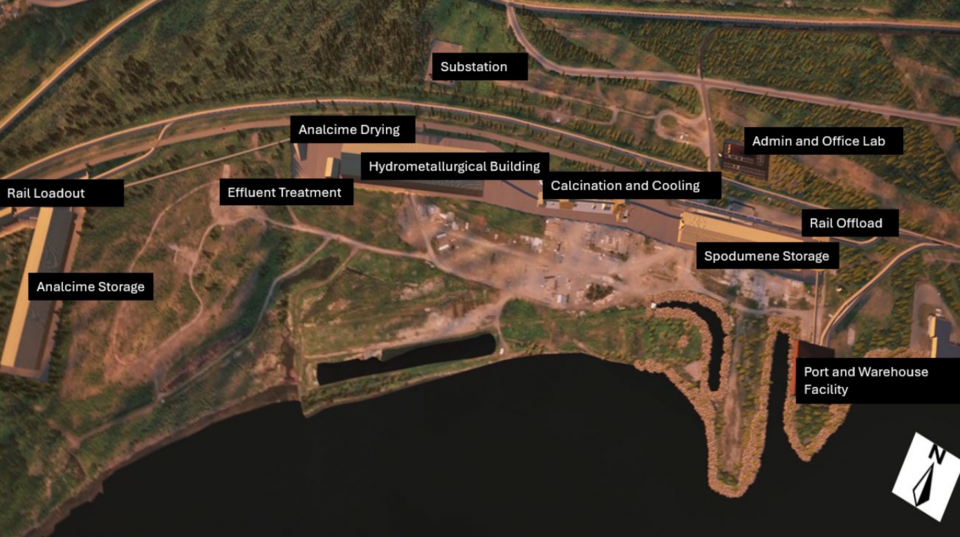THUNDER BAY - Avalon Advanced Materials is building its case for a Thunder Bay lithium refinery.
The Toronto lithium company has been churning out a steady news flow in September and into this month touting the economic and spinoff benefits that a lithium hydroxide processing plant would bring to the city and region.
In its latest news release, Avalon said a consultant’s report shows the refinery will have a “significant economic multiplier effect” in the community, across the region and the country in GDP, employment and labour income. The details were included in a consultant’s study that can be accessed here.
For instance, 128 workers will be employed at the refinery with future openings for millwrights, mechanics, electricians, metallurgical engineers and process operators.
"The report illustrates the substantial benefits to the City of Thunder Bay and aligns well with the Sustainable Jobs Act, helping create the net-zero workforce of the future,” said Avalon CEO Scott Monteith in a statement.
”The positive impacts will ripple through the community, supporting local businesses and enhancing the region's overall economic vitality. This initiative promises long-term prosperity, enriching the city and creating lasting value for its residents."
Avalon anticipates the start of plant construction in 2027 and flipping on the switch for production in 2028.
Avalon is one of four leading lithium players with advanced-stage deposits in northwestern Ontario. Each company is racing to claim the title of having the province’s first operating lithium mine and processing facility.
And like other companies, Avalon is lobbying government to funding to build these factories.
Avalon is out to raise $1.3 billion to construct its proposed refinery in Thunder Bay. The company has said it’s looking to Ottawa and Queen’s Park to be significant funders for the project.
To date, neither the provincial or federal government has committed to funding any lithium refineries in the region.
Avalon has nailed down a plant location, acquiring a 380-acre former pulp mill property in the city’s north end.
There, the company estimates it would produce 30,000 tonnes a year of lithium hydroxide over a 30-year operating life with ambitions down the road to expand the plant. Avalon is even entertaining the idea of placing a solar farm on the property.
That’s all positive news to Thunder Bay Mayor Ken Boshcoff who said in the release that Avalon’s project stands to play a “crucial role in revitalizing Canada's economy, particularly in northwestern Ontario.”
“It aligns perfectly with Premier (Doug) Ford's strategy to unite northern resources with southern industrial strength, boosting the region's presence in technologies like electric vehicles and battery storage. With the numerous advantages of Avalon's site, its very encouraging to see how the project will create jobs and ensure long-term prosperity."
Near the Manitoba border, Avalon has a lithium deposit of its own in the region.
Separation Rapids, located 70 kilometres north of Kenora, is a rare pegmatite deposit enriched in lithium minerals, namely petalite and lepidolite.
Avalon is in a joint venture there with Belgian-based miner and processor SCR- Sibelco NV. A drilling program has finished on the property with an updated mineral estimate expected on the almost-10-million-tonne measured and indicated lithium oxide resource, which could potentially be a feed source for the refinery.



